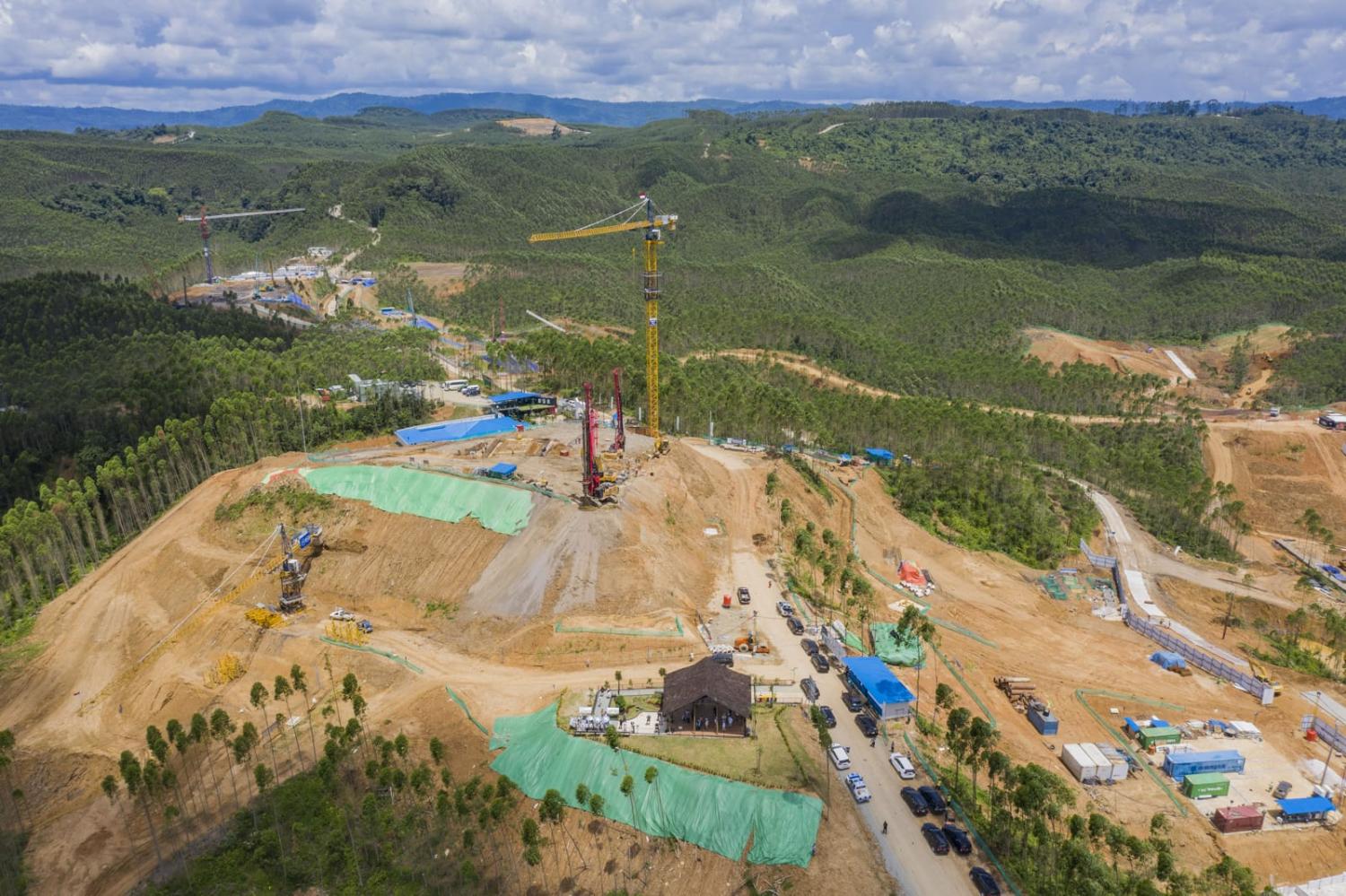China is one of Indonesia’s largest investors and for President Joko Widodo this amounts to a capital idea – quite literally, with his plan to move the seat of Indonesia’s government from Jakarta to East Kalimantan.
Jokowi, as the president is widely known, has a vision for Nusantara as the new capital of Indonesia that aligns with a broader ambition to create 100 “Smart Cities” across the country by 2045. Some 75 regencies or existing cities have been identified for master plans, with the aim to establish carefully planned urban environments with amenities to take advantage of developments in artificial intelligence and the next wave of the “Internet of Things”. The hope is to facilitate resource use and waste management, distribution of energy, monitoring pollution and ensure the efficiency of production.
China has not invested significantly in Indonesia’s smart cities ambition since it was outlined in 2017, however this may be soon to change.
This year, major Chinese companies signed a Memorandum of Understanding regarding investment in various sectors of the Indonesian economy, focused particularly on projects located on Bintan Island and East Kalimantan. The initiative was described as an effort to encourage Chinese investors to invest in the smart city sector, and is to be further facilitated by an exhibition to be presented next month by the Chinese Indonesian Association (INTI).
To date, China has favoured major infrastructure projects in Indonesia. This has included the Jakarta Bandung Fast Train Project, the Kayan Hydroelectric Power Plant, PT Indonesia Morowali Industrial Park and PT Gunbuster Nickel Indonesia for nickel processing, and the Batang Toru Dam located in Tapanuli, North Sumatra. Such investments haven’t always burnished China’s reputation. Several investments in Indonesia have faced environmental and sustainability questions.
But China has invested in smart city developments elsewhere in Southeast Asia. As recently published research has shown, Chinese companies have made investments in the past decade in the Forest City project in Malaysia as well as two smart city projects in the Philippines – New Clark City and New Manila Bay – City of Pearl. China Development Bank has also made investments in Thailand and in 2020 China backed construction of New Yangon City Development in Myanmar.
So it makes sense that China could look to invest in the smart city sector in Indonesia. In a previous deal, technology giant Huawei signed an MoU regarding the joint development of platforms and solutions for smart cities with PT Telkom Indonesia Tbk. Huawei has also stated that it is ready to assist Indonesia in building a new capital.
Huawei provided municipal governments access to digital services, public safety infrastructure, cybersecurity and technical capacity development through the smart city program. One such project was Bandung Smart City, which was developed as a “safe city” concept. As part of the project, Huawei, along with Telkom, constructed a command centre monitoring cameras throughout the city. This is not without concerns, however. As in other countries, the widespread use of Chinese technology has raised fears over data privacy infringement and potential surveillance.
Investment in technology to facilitate sustainability also has the potential benefit of changing the perspective of the Indonesian public towards China. China can present itself as an alternative partner for Indonesia in its renewable and technological transition. This will be a challenge, given the amount of Chinese capital directed towards coal-based power plants and the environmental destruction caused by nickel processing.
Success of this smart city cooperation, therefore, will depend on how Chinese and Indonesian governments address such concerns. Mutually beneficial might be the common mantra, but a truly smart city will make it so.

